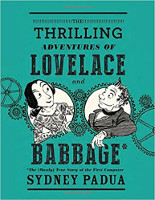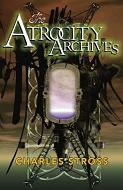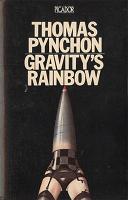 “Being smart has served homo sapiens well, enabling us to colonise the Earth and even sprinkle our technology lightly across the Solar System, but beetles, crocodiles, and horseshoe crabs have enjoyed much longer success, and all without feeling the need to build nuclear weapons or pump the atmosphere full of greenhouse gas. Intelligence may be useful to have but it comes with a self-destructive downside and it certainly isn’t the only way to dominate a planetary biosphere.”
“Being smart has served homo sapiens well, enabling us to colonise the Earth and even sprinkle our technology lightly across the Solar System, but beetles, crocodiles, and horseshoe crabs have enjoyed much longer success, and all without feeling the need to build nuclear weapons or pump the atmosphere full of greenhouse gas. Intelligence may be useful to have but it comes with a self-destructive downside and it certainly isn’t the only way to dominate a planetary biosphere.”
Paradox starts with a chapter titled Fermi Paradox: An Introduction, by Marek Kukula and Rob Edwards. For those not familiar with the concept, the Fermi Paradox (named after Enrico Fermi from the Los Angeles National Laboratories) essentially points out that, given the number of solar systems out there, the statistical frequency of planets in those etc - the universe should be teeming with life, and thus, evolving from it, intelligent life. The basic premise was later expanded upon by Frank Drake in his famous equation, trying to quantify the question. But, we know that this is not the case, or not as far as we can observe. Thus, as the cover posits - Where is everybody?
For this nifty collection Ian Whates, writer and editor (and head honcho at Newcon Press) has assembled a fascinating list of contributors - scientists, scientists who write, writers who write Science Fiction - who in turn provided him (and us) with a fascinating variety of approaches, expanding on the various proposed answers to the paradox in a highly entertaining (and frequently enlightening) manner.
“Our enduring contribution to the shared cultural heritage of the Milky Way could amount to little more than a brief pulse of twentieth century TV and Radio.”
Well, that’s us put in place, then…
I’ll run through the individual stories below, with a short capsule review for each of what it is about and what I thought of it - if that kind of thing spoils your fun reading the book then stop now, accept my summary that this is fascinating, unusual, and entertaining stuff, and go get the book!
Catching Rays - David L Clements
On the one hand a first-contact story, of some kind. And on the other a story of researchers, funding, results ownership, and the politics going with that. By an academic involved in space research, nevertheless. Figures…
The Big Next - Pat Cadigan
A cute little story of a mother and her brilliant and inquisitive 7-year old daughter. Until it takes a sharp turn into the leftfield. And then stops. Give us more!
Baedeker’s Fermi - Adam Roberts
A victorian-era trip up the Rhine valley - with some strange Alien/Wellsian interludes. The main premise is that, as you have a tendency to only see what’s in your guide book when travelling, that you edit your reality similarly. Which would, of course, add another complex variable to the Drake Equation!
Zeta Reticuli - Paul Cornell
A story of the first ‘modern’ alien abduction experience, as reported in 1961. Told from the viewpoint of an alien. A marvellous little piece, wonderfully alien, yet again confirming my opinion of Cornell as one of the most thrilling current-day writers!
The Ambulance Chaser - Tricia Sullivan
Mathematical beings from space-time surround us, taking over humans to help them avoid accidents and affect causality in a way that aids development of the human race … falling somewhere between Tricia’s Occupy Me and Invasion of the Bodysnatchers. But there’s much much more - I would think that Tricia had more fun writing this than should be allowed!
Lost To Their Own Devices - Adrian Tchaikovsky
A neat little tale of an explorer exploring the remains of an Alien civilisation, long gone. Except for the tantalising artefacts they left behind. So far so vanilla, and the reversal that follows is also rather standard I felt. Not bad in any way, but not new, and not terribly satisfying, especially in comparison to the rest of the offerings here.
In the Beginning - Gerry Webb
An assassination attempt on a Patriarch, rich beyond measure, on a huge space habitat. But why? Gerry cannot avoid dropping some hints and references to the here and now, and to his involvement with space flight! It’s entertaining, but feels incomplete, leaving open a lot of questions. Another one that screams for more.
The Trail of the Creator, The Trial of Creation - Paul Di Filippo
The universe is full of life. There are millions of sentient races, all derived from the same DNA template, with superficial differences (which still greatly affect morphology and phenotype - so far so realistic!). A group of killers, each regarding the others as an abomination against the True Faith (of having been created in God’s own image etc), are tracking down the Creator, to kill him. This story is the bastard child of the Star Trek universe (or every other multi-sophont story, ever) and Fredric Brown’s The Solipsist. Grand.
Stella by Starlight - Mike Resnik and Robert T. Jeschovek
A slightly incoherent-feeling (co-authored effect?) but rather fun take on why we are alone in the Galaxy. And, overall, much more positive and uplifting than it has any right to be!
Fermi’s Doubts - George Zebrowski
So what if we are not alone, but are not contacted? What if we are being observed, aren’t to _be_ contacted, to make our own way until we can join the enlightened races? Not a new sentiment, I know, like most of the discussions and approaches concerning Fermi, but neatly done.
Audiovisionary - Stephanie Saulter
Story of a patient on a psychiatric ward, hearing voices, seeing pictures, and claiming that these come from an alien multitude. I has destroyed his life, his sanity, and his future, and the doctors don’t know what else to try, given that all approaches have failed. A story like a punch to the gut.
Aether - Robert Reed
A very different answer to ‘but why do we seem to be alone?’, and one I rather liked in its approach. Told in a sparse, precise, detached language. A gem.
The End of the World - Keith Brooke and Eric Brown
The ‘Silence before Invasion’ scenario, but with a twist. Classic ‘golden age’ SF, I guess, but not terribly inspired all the same.
The Worldmaker - Rachel Armstrong
“[...] the definitions of ‘life’ themselves make little difference to the consequences of our belief in them. I have certainly seen enough remarkable lifelike activity in the under ice seas of Europa and in the extraordinary events precipitates by her automated interplanetary composting unit, to know that life is stranger and more elusive than any label we might choose to use.”
An unusual story, in two rather distinct parts, or threads, pointing out that the so-called paradox already falls down at our inability to define what is ‘life’, never mind ‘intelligent life’
Atonement, Under the Blue-White Sund - Mercurio D. Rivera
Interesting answer to the question posed: because there is a race of simulacra, known (now) as the Surge, killing every intelligence brazen enough to announce its existence into the Galaxy! But humanity has encountered one other race, and has gone to war with it (wouldn’t we just, eh!), before forming an alliance with them against the common, major threat.
And now a human, and the killer of her family, are working together on a colony. It’s an uneasy truce, with some interesting twists as the story proceeds.
I had not heard of this writer before. Suffice to say, that on the strength of this story I have bought his collection. Stay tuned for a review!
The stories are followed by short biographies of all the contributors.
Title: Paradox
Title: Stories Inspired by the Fermi Paradox
Editor: Ian Whates
Reviewer: Markus
Reviewer URL: http://thierstein.net
Publisher: Newcon Press
Publisher URL: http://www.newconpress.co.uk
Publication Date: August 2014
Review Date: 160519
ISBN:9781907069727
Price: UKP 12.99
Pages: 231
Format: Paperback
Topic: Science Fiction
Topic: Science













